Related Research Articles
In the Platonic, Neopythagorean, Middle Platonic, and Neoplatonic schools of philosophy, the demiurge is an artisan-like figure responsible for fashioning and maintaining the physical universe. The Gnostics adopted the term demiurge. Although a fashioner, the demiurge is not necessarily the same as the creator figure in the monotheistic sense, because the demiurge itself and the material from which the demiurge fashions the universe are both considered consequences of something else. Depending on the system, they may be considered either uncreated and eternal or the product of some other entity.

Marsilio T. Ficino was an Italian scholar and Catholic priest who was one of the most influential humanist philosophers of the early Italian Renaissance. He was an astrologer, a reviver of Neoplatonism in touch with the major academics of his day, and the first translator of Plato's complete extant works into Latin. His Florentine Academy, an attempt to revive Plato's Academy, influenced the direction and tenor of the Italian Renaissance and the development of European philosophy.

Proclus Lycius, called Proclus the Successor, was a Greek Neoplatonist philosopher, one of the last major classical philosophers of late antiquity. He set forth one of the most elaborate and fully developed systems of Neoplatonism and, through later interpreters and translators, exerted an influence on Byzantine philosophy, Early Islamic philosophy, Scholastic philosophy, and German Idealism, especially G.W.F. Hegel, who called Proclus's Platonic Theology "the true turning point or transition from ancient to modern times, from ancient philosophy to Christianity."
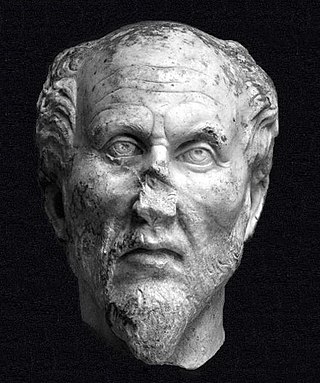
Plotinus was a Greek Platonist philosopher, born and raised in Roman Egypt. Plotinus is regarded by modern scholarship as the founder of Neoplatonism. His teacher was the self-taught philosopher Ammonius Saccas, who belonged to the Platonic tradition. Historians of the 19th century invented the term "neoplatonism" and applied it to refer to Plotinus and his philosophy, which was vastly influential during late antiquity, the Middle Ages, and the Renaissance. Much of the biographical information about Plotinus comes from Porphyry's preface to his edition of Plotinus' most notable literary work, The Enneads. In his metaphysical writings, Plotinus described three fundamental principles: the One, the Intellect, and the Soul. His works have inspired centuries of pagan, Jewish, Christian, Gnostic, and early Islamic metaphysicians and mystics, including developing precepts that influence mainstream theological concepts within religions, such as his work on duality of the One in two metaphysical states.
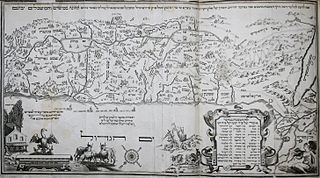
The Israelites were a group of Semitic-speaking tribes in the ancient Near East who, during the Iron Age, inhabited a part of Canaan. They were also an ethnoreligious group.
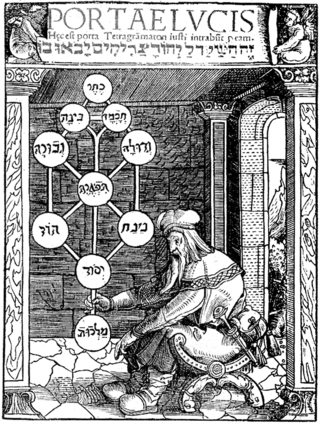
Western esotericism, also known as esotericism, esoterism, and sometimes the Western mystery tradition, is a term scholars use to classify a wide range of loosely related ideas and movements that developed within Western society. These ideas and currents are united since they are largely distinct both from orthodox Judeo-Christian religion and Age of Enlightenment rationalism. It has influenced, or contributed to, various forms of Western philosophy, mysticism, religion, pseudoscience, art, literature, and music.

Iamblichus was a Syrian neoplatonic philosopher. He determined a direction later taken by neoplatonism. Iamblichus was also the biographer of the Greek mystic, philosopher, and mathematician Pythagoras. In addition to his philosophical contributions, his Protrepticus is important for the study of the sophists because it preserved about ten pages of an otherwise unknown sophist known as the Anonymus Iamblichi.
Leonard George is a Canadian psychologist and schizophrenia researcher based in Vancouver, British Columbia, best known for his writing and lectures on varieties of anomalous phenomena, spirituality, psychology and history. In the 1990s he was a noted broadcaster in Canada, appearing on radio and television in that country and in the United States where he appeared on national programs such as a highly rated NBC special hosted by actor Peter Graves in October 1994.
Indology, also known as South Asian studies, is the academic study of the history and cultures, languages, and literature of the Indian subcontinent, and as such is a subset of Asian studies.
The Oxford Centre for Hindu Studies, founded in 1997 and based in Oxford, England, is a research academy focused on the study and teaching of Hindu cultures of India and Nepal. It develops academic programmes of education, research and publishing in Hindu studies. It aims to encourage the Hindu community in the academic study of their own traditions and cultures. Till 2020, it functioned as a "recognised independent center" under the University of Oxford.
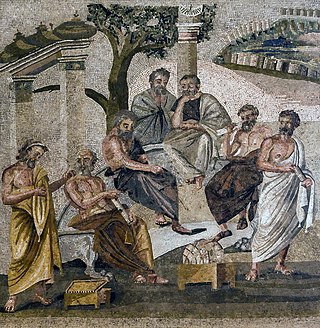
The Academy, variously known as Plato's Academy, the Platonic Academy, and the Academic School, was founded at Athens by Plato circa 387 BC. Aristotle studied there for twenty years before founding his own school, the Lyceum. The Academy persisted throughout the Hellenistic period as a skeptical school, until coming to an end after the death of Philo of Larissa in 83 BC. The Platonic Academy was destroyed by the Roman dictator Sulla in 86 BC.
Gnosticism refers to a collection of religious groups originating in Jewish religiosity in Alexandria in the first few centuries AD. Neoplatonism is a school of Hellenistic philosophy that took shape in the 3rd century, based on the teachings of Plato and some of his early followers. While Gnosticism was influenced by Middle Platonism, neoplatonists from the third century onward rejected Gnosticism. Nevertheless, Alexander J. Mazur argues that many neoplatonic concepts and ideas are ultimately derived from Sethian Gnosticism during the third century in Lower Egypt, and that Plotinus himself may have been a Gnostic before nominally distancing himself from the movement.
John Myles Dillon is an Irish classicist and philosopher who was Regius Professor of Greek in Trinity College, Dublin between 1980 and 2006. Prior to that he taught at the University of California, Berkeley. He was elected a corresponding member of the Academy of Athens on 15 June 2010, and in July 2022 a corresponding member of the British Academy. Dillon's area of research lies in the history of Platonism from the Old Academy to the Renaissance, and also Early Christianity.
Barbara Yorke FRHistS FSA is a historian of Anglo-Saxon England, specialising in many subtopics, including 19th-century Anglo-Saxonism. She is currently emeritus professor of early Medieval history at the University of Winchester, and is a fellow of the Royal Historical Society. She is an honorary professor of the Institute of Archaeology at University College London.

Steven Fine is a cultural historian specializing in 'Judaism in the Greco-Roman World' and a professor at Yeshiva University.
Neoplatonism is a version of Platonic philosophy that emerged in the 3rd century AD against the background of Hellenistic philosophy and religion. The term does not encapsulate a set of ideas as much as a series of thinkers. Among the common ideas it maintains is monism, the doctrine that all of reality can be derived from a single principle, "the One".
Hans T. Bakker is a cultural historian and Indologist, who has served as the Professor of the History of Hinduism and Jan Gonda Chair at the University of Groningen. He worked in the British Museum as a researcher in the project "Beyond Boundaries: Religion, Region, Language and the State".
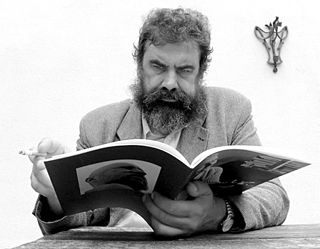
Algis Uždavinys (1962–2010) was a Lithuanian philosopher and scholar. His work pioneered the hermeneutical comparative study of Egyptian and Greek religions, especially their esoteric relations to Semitic religions, and in particular the inner aspect of Islam (Sufism). His books have been published in Lithuanian, Russian, English and French, including translations of Plotinus, Frithjof Schuon and Ananda Coomaraswamy into Russian and Lithuanian.
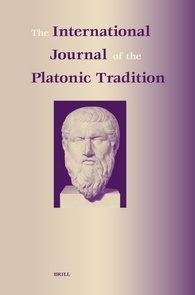
The International Journal of the Platonic Tradition is a biannual peer-reviewed open access academic journal of philosophy published by Brill Publishers under the auspices of the International Society for Neoplatonic Studies. It was established in 1985 and the editor-in-chief is John F. Finamore. Among the members of the Editorial Board are John Dillon, Gretchen Reydams-Schils, and Anne Sheppard. The journal is abstracted and indexed in the Humanities International Index, International Review of Biblical Studies, and Scopus.
Asad Q. Ahmed is an American scholar who is the Magistretti Distinguished Professor of Middle Eastern Languages and Culture and Professor of Arabic and Islamic studies in the Department of Middle Eastern Languages and Cultures at the University of California, Berkeley. He is also the director of the Center for Middle Eastern Studies.
References
- ↑ "(ARCH) International Society for Neoplatonic Studies (ISNS)". arch.oucs.ox.ac.uk. Archived from the original on 2016-03-04.
- ↑ "The International Journal of the Platonic Tradition | BRILL". www.brill.com. Archived from the original on 2013-07-12.
- ↑ "The International Journal of the Platonic Tradition | brill". brill.com.
- ↑ "ISNS 2014 LISBON CONFERENCE | the 12th Annual Conference of the International Society for Neoplatonic Studies". Archived from the original on 2014-10-11. Retrieved 2014-09-25.
- ↑ "Lisbon Conference Schedule" (PDF). Retrieved 10 September 2024.
- ↑ Michaud, Derek A. (June 18, 2014). "International Society for Neoplatonic Studies Annual Conference".
- ↑ "School of History, Archaeology and Religion".
- ↑ "School of History, Archaeology and Religion". Cardiff University. Retrieved 10 September 2024.
- ↑ "11th Annual International Society for Neoplatonic Studies Conference". philevents.org.
- ↑ "International Society for Neoplatonic Studies Conference". philevents.org.
- ↑ "SOCIETY FOR NEOPLATONIC STUDIES CONFERENCE". henrycorbinproject.blogspot.com.
- ↑ "Universidad Autónoma de Madrid". www.uam.es.
- ↑ "Conversations Platonic and Neoplatonic: Intellect, Soul and Nature | Department of Classics | College of Liberal Arts & Sciences | The University of Iowa". clas.uiowa.edu.